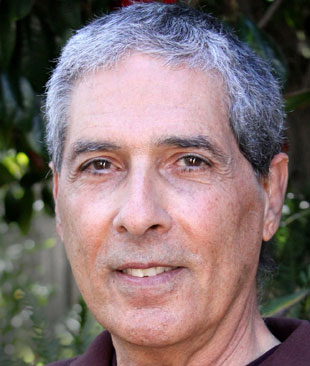Learn From Difficulties
"First, we can learn to recognize that the difficulty is our path instead of trying to escape from it. This is a radical yet necessary change in our perspective. When uncomfortable things happen to us, we rarely want to have anything to do with them. We might respond with the belief 'Things shouldn't be this way' or 'Life shouldn't be so messy.' Who says? Who says that life shouldn't be a mess? When life is not fitting our expectations of how it's supposed to be, we usually try to change it to fit our expectations. But the key to practice is not to try to change our life but to change our relationship to our expectations — to learn to see whatever is happening as our path.
"Our difficulties are not obstacles to the path; they are the path itself. They are opportunities to awaken. Can we learn what it means to welcome an unwanted situation, with its sense of groundlessness, as a wake-up call? Can we look at it as a signal that there is something here to be learned? Can we allow it to penetrate our hearts? By learning to do this, we are taking the first step toward learning what it means to open to life as it is. We are learning what it means to be willing to be with whatever life presents us. Even when we don't like it, we understand that this difficulty is our practice, our path, our life.
"Second, when hardship strikes, we can learn not to point the finger of blame — at another person, at ourselves, at an institution, or even at life itself — and instead turn our attention inward. When we're in distress, this is often one of the hardest things to do, because we so want to defend ourselves. We so want to be right. But it is much more helpful to look at what we ourselves have brought to the situation — beliefs, expectations, requirements, and cravings. Then we might gradually come to understand that whenever we're having an emotional reaction, it's a signal that we have some belief system in place that we haven't yet looked at deeply enough, With practice this understanding gradually becomes our basic orientation."
— Being Zen: Bringing Meditation to Life
Entitlement
"A sense of entitlement guarantees that eventually you will see yourself as a victim."
— Saying Yes to Life ( Even The Hard Parts)
Difficulties are not Obstacles
"Our difficulties are not obstacles to the path; they are the path itself. They are opportunities to awaken."
— Being Zen: Bringing Meditation to Life
A Practice of Confronting Our Fears
"Frequently I devote one day where I commit myself to the practice of saying yes to fear. What this means is that upon feeling even a hint of anxiety, I practice moving toward the fear, not with the heaviness of 'my suffering' but rather with a certain lightness of heart that comes from seeing fear as nothing more than the human conditioning to which we are all subject. Without this lightness of heart, how could we ever step beyond the protective cocoon?
"The transformation of fear does not mean that we no longer have fearful responses. It means that we no longer believe that those responses are who we are. This is what practice is about: learning to stop believing that our deep-seated reactivity is who we are. Who we really are is much bigger than any of our fear-based conditioned responses. When we can really experience fear, we can see through this false identification, perhaps even glimpsing a vaster sense of Being."
— Being Zen: Bringing Meditation to Life
Be A White Bird In the Snow
"There is one story of a seeker who, upon clearly seeing the truth — where he was no longer defined and confined by his self-images — became a cab driver. Like a white bird in the snow, he was able to give himself to others simply through his own presence, his being.There was nothing special about his situation."
— At Home in the Muddy Water: A Guide to Finding Peace Within Everyday Chaos
Our Yearning for Comfort
"Perhaps it's the belief that we shouldn't have any problems, any discomfort, any pain, that makes modern life seem so distressing. Life doesn't match our image of how it should be, and we conclude that life itself is wrong. We relate to everything from the narrow, fearful perspective of 'I want' — and what we want is to feel good. When our emotional distress does not feel good, we recoil from it. The resulting discomfort generates fear, then fear creates even more distress, and distress becomes our enemy, something to be rid of. Let us instead examine our basic requirement that life shouldbe comfortable. This one assumption causes all of our endless difficulties."
— Saying Yes to Life ( Even The Hard Parts)
